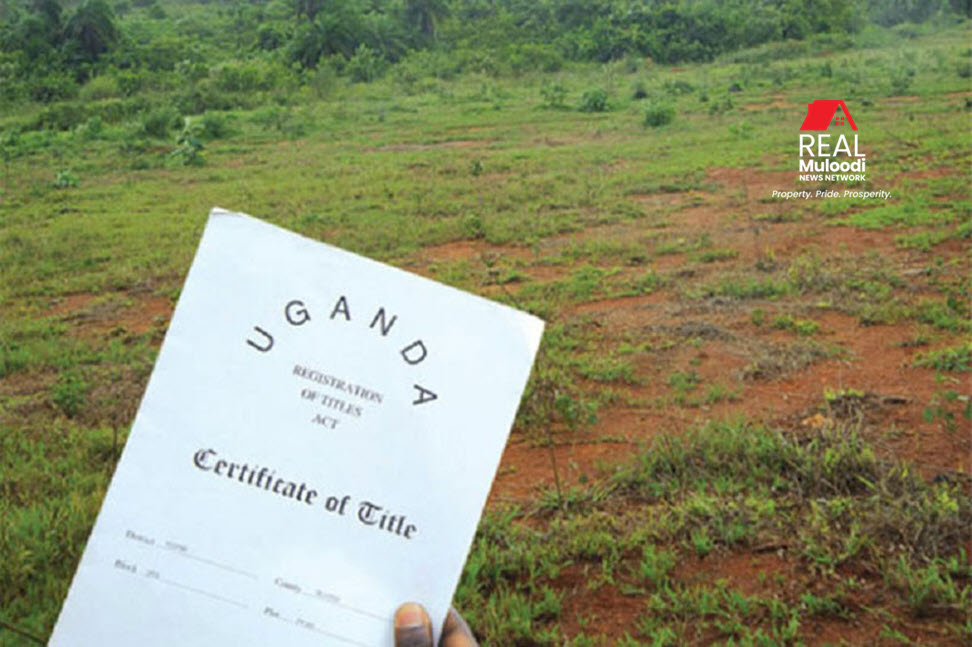UGANDA, Kampala | Real Muloodi News | Uganda Revenue Authority (URA) announced this week that buyers and sellers of land worth Shs10 million or more must now have a tax identification number (TIN).
Ms Milly Isingoma Nalukwago, the Assistant Commissioner for Research, Planning and Development at URA, said the requirement is aimed at registering all the potential taxpayers and widening the current tax base.
The move has been welcomed by real estate industry veterans, who have long complained that the few who are paying taxes are carrying more than their fair share of the burden, particularly so in the very visible real estate sector.
Mrs Judy Rugasira Kyanda, the Managing Director of Knight Frank Uganda, welcomed the development, saying, “What URA, in my opinion, is trying to do is to widen the tax base and they are only asking you to register for a TIN when you are buying or selling a land amounting to USh10 million and above.”
However, Mr Albert Beine, Founder and Managing Director at Global Taxation Services Ltd, warned that the new rule could delay land transactions, especially in the rural areas where it can be harder for buyers and sellers of land to register for a TIN.
“The intention is to monitor the land transaction that is happening, but the challenge is it requires that the person doing it must have a telephone number, email address and a stable Internet connection,” he said.
“Imagine if it’s your grandfather in the village selling a plot of land who doesn’t have any of those.”
This is to inform the public about the requirement for purchasers and sellers of land worth Ugx 10 Million and above to have a TIN.
Prospective land buyers and sellers are thus advised to acquire TINs. Use this link for guidance👇https://t.co/Wz2iBE2tqO pic.twitter.com/mKliyLqKjO
— Uganda Revenue Authority (@URAuganda) December 7, 2021
Uganda has a population of over 47 million people, with the majority of Ugandans operating in an informal economy. As a result, URA has only registered 1.8 million taxpayers on its its tax register.
Without taxpayers, the government faces serious obstacles for raising domestic revenue. Uganda stands to lose billions of shillings which is needed for investment in infrastructure development and service delivery.
For over a decade, Uganda’s Gross domestic product (GDP) has stagnated at between 12 and 13 per cent, which is lower than in Kenya, Tanzania and Rwanda. The tax-to-GDP ratio, which records how much of a country’s output goes to government in form of tax receipts, is also below the sub-Saharan African average of 16 per cent.
During the URA’s 30th anniversary celebrations in September, President Yoweri Kaguta Museveni criticised the tax authority for “not doing enough” to widen the tax base which had grown from 4 to 11 per cent, before stagnating at between 12 and 13 per cent for over a decade.
According to President Museveni, URA will have to double the tax-to-GDP ratio to between 20 and 26 per cent for the public finances to become self-sufficient.
In an effort to widen the tax contributions, there is a plan to increase taxpayer registrations by 500,000 this year according to Ian Muhimbise Rumanyika, manager public and corporate affairs at URA.
Domestic Revenue
Government’s five-year domestic revenue mobilisation strategy aims to raise the tax-to-GDP ratio to 16 per cent by 2023. In the Financial Year 2020/2021, URA collected net revenue of USh19.2 trillion, a 14 per cent growth from the previous year, which translated into a tax-to-GDP ratio of 12.99 per cent.
In real terms, this reflected a growth in revenue of USh25 trillion – the highest in four years – and a growth in the ratio by 1 per cent.
How to Apply for a TIN
If you are thinking of buying or selling any land or property worth more than USh10m, here is how you can obtain a TIN:
If you have real estate news that you would like featured on Real Muloodi News Network, contact us via email at support@realmuloodi.co.ug
READ MORE LIKE THIS:
Government Taxes Are Not To Blame for Rising Rental Rates in Kampala
When You’re New to Residential Property Development, What to Know.



